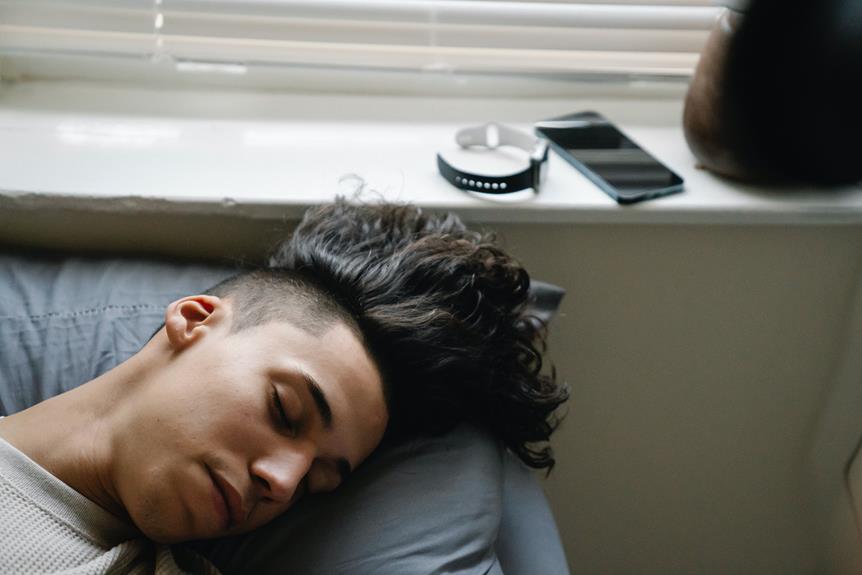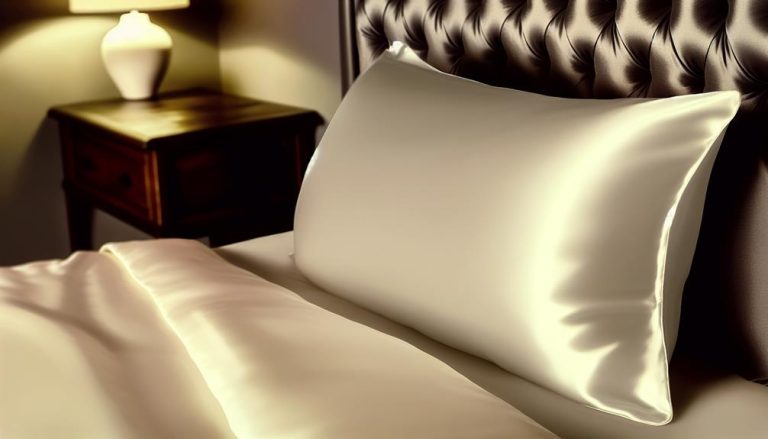Detox Your Sleep Routine: Are you tired of tossing and turning all night, desperately trying to find that elusive state of blissful slumber? Well, my sleep-deprived friends, fret no more, for we are here to help you achieve the restful nights you so desperately crave.
In this discussion, we will explore the importance of sleep for our overall health and well-being, uncover the various factors that disrupt our precious slumber, and reveal the secrets to creating a sleep environment that will whisk you away to dreamland.
So, sit back, relax, and prepare to embark on a journey towards a better night’s sleep.
Importance of Sleep for Health
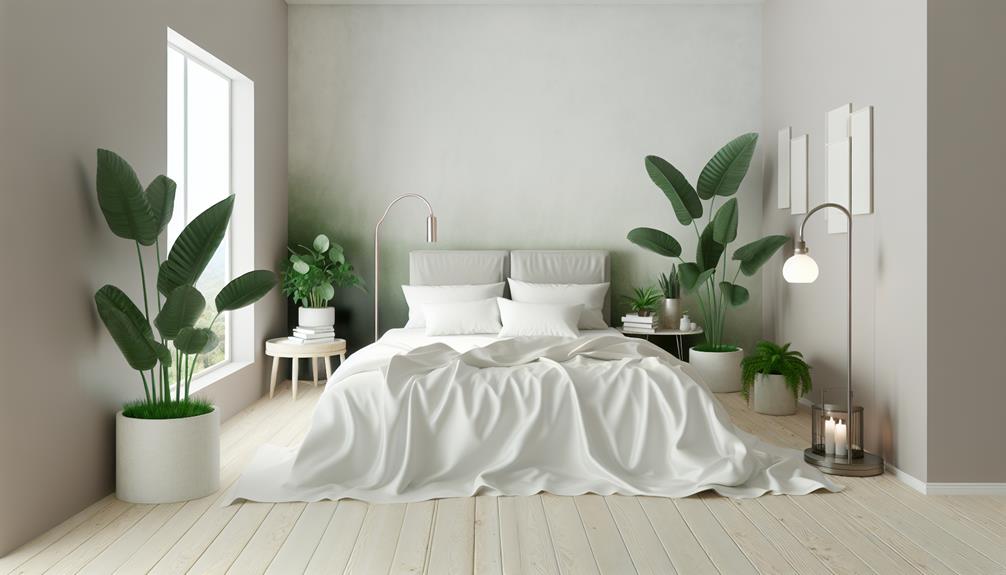
Sleep is absolutely essential for our overall health and well-being. It’s during sleep that our bodies support brain function, positively impact the immune and cardiovascular systems, and restore and repair themselves.
Lack of sleep can increase the risk of chronic health issues, such as heart disease and Alzheimer’s. Unfortunately, various factors can disrupt our Sleep Routine, such as stress, medical conditions, caffeine, and nightshift work.
To improve our sleep routine and promote better sleep, it’s important to consider a digital detox. Avoiding screens for at least 30 minutes before bed can improve sleep quality and help prepare the brain for rest. Establishing a consistent sleep schedule, creating a dark sleep environment, and making small changes like light stretching and drinking herbal tea can also contribute to a better night’s sleep.
Prioritizing sleep is key to achieving liberation and overall well-being.
Factors That Disrupt Sleep
To get a good night’s sleep, it’s important to understand the factors that can disrupt our precious slumber. Here are some key factors that can interfere with our sleep:
- Stress and high-stress levels: Chronic stress can greatly impact the quality of our sleep, making it difficult to relax and fall asleep.
- Medical conditions and pain: Symptoms from medical conditions or chronic pain can disrupt our sleep patterns, causing discomfort and restlessness throughout the night.
- Consumption of caffeine and heavy meals: Consuming caffeine or eating heavy meals close to bedtime can stimulate our bodies, making it harder to wind down and fall asleep.
These factors can sabotage our quest for rejuvenating Sleep Routine. By addressing them and making small changes to our routine, we can create a better sleep environment and experience more restful nights.
Digital Detox for Better Sleep
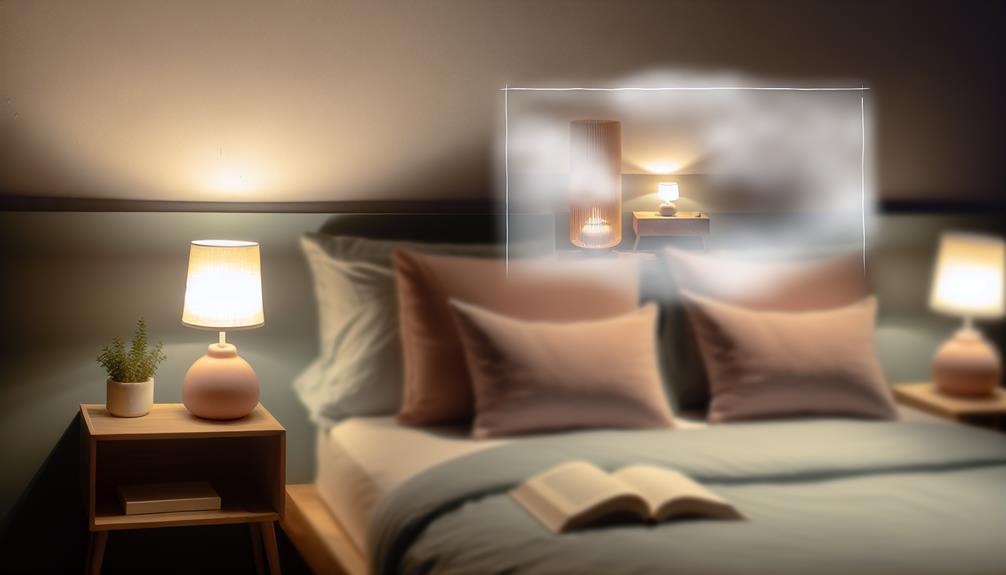
By disconnecting from our digital devices, we can pave the way for a peaceful and rejuvenating night’s sleep. In today’s digital age, our constant connection to screens can disrupt our sleep patterns and leave us feeling restless. The blue light emitted by our devices interferes with our natural sleep-wake cycle, suppressing the production of melatonin, the hormone that regulates sleep.
To achieve a digital detox for better sleep, it’s essential to avoid screens for at least 30 minutes before bed. Unplugging from electronic devices 90 minutes before bed can further promote healthier sleep. Setting our phones to ‘Do Not Disturb’ mode prevents interruptions during sleep, allowing us to truly disconnect and experience the liberation of a restful night’s sleep.
Effects of Screens on Sleep
Constant exposure to screens before bedtime can have detrimental effects on the quality and duration of our sleep. It’s tempting to scroll through social media or binge-watch our favorite shows, but the blue light emitted by screens disrupts our circadian rhythm and delays the production of melatonin, the hormone that regulates sleep.
To emphasize the impact of screens on our sleep, consider these points:
- Keeping the phone out of reach or in another room reduces nighttime usage.
- Staring at the phone disrupts the circadian rhythm and lengthens the time it takes to fall asleep.
- Exposure to blue light from screens can delay melatonin onset, making it harder to achieve restful sleep.
To liberate ourselves from the negative effects of screens, it’s essential to establish a consistent sleep schedule and create a tech-free bedtime routine.
Easy Changes to Improve Sleep Routine
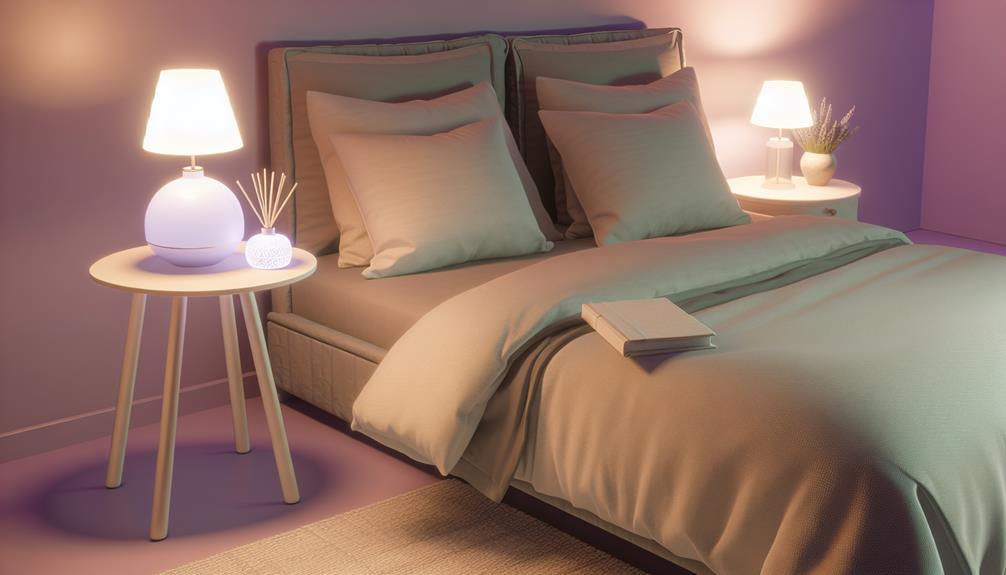
Making simple changes to our sleep routine can have a significant impact on the quality of our sleep. We all know how frustrating it can be to toss and turn all night, unable to find that elusive state of relaxation. But fear not, because there are easy changes we can make to improve our sleep routine and finally achieve that deep, restorative slumber we desire.
Firstly, incorporating light stretching before bed can promote relaxation and help us fall asleep faster. Creating a dark sleep environment by using curtains and sleep masks can enhance sleep quality by blocking out any unwanted light. Keeping noise levels low and using white noise machines can also minimize sleep disruptions, allowing us to drift off peacefully. And let’s not forget the power of a soothing cup of herbal tea, like chamomile, which can have a calming effect on our body and mind.
Lastly, having a light and nutritious evening meal can support better sleep by providing our bodies with the necessary nutrients for rest and repair. So let’s start making these small, but impactful changes to our sleep routine and experience the liberation of a truly restful night’s sleep.
Creating a Dark Sleep Environment
Now that we’ve explored the easy changes we can make to improve our sleep routine, let’s delve into the importance of creating a dark sleep environment for achieving optimal rest and rejuvenation.
When it comes to getting a good night’s sleep, darkness is key. Here are three reasons why creating a dark sleep environment is essential:
- Melatonin production: Darkness stimulates the production of melatonin, the hormone that regulates sleep. By eliminating light sources in our sleep environment, we can ensure our bodies produce enough melatonin to help us fall asleep faster and stay asleep longer.
- Circadian rhythm: Our bodies have a natural sleep-wake cycle called the circadian rhythm. Exposure to light at night disrupts this rhythm and can make it harder to fall asleep. By creating a dark sleep environment, we can align our sleep schedule with our body’s natural rhythm.
- Deep sleep: Deep sleep is the most restorative stage of sleep, where our bodies repair and rejuvenate. Light can interfere with this crucial stage, so eliminating all sources of light in our sleep environment can promote deeper, more restful sleep.
Frequently Asked Questions
How Does Chronic Stress Affect Sleep Quality?
Chronic stress can seriously impact our sleep quality. When we’re constantly stressed, it can be difficult to relax and wind down at night. Our minds are racing, making it harder to fall asleep and stay asleep.
Stress also increases the likelihood of waking up during the night, leading to fragmented sleep. This lack of quality sleep can leave us feeling tired and groggy the next day, affecting our overall well-being.
It’s important to find ways to manage and reduce stress for better sleep.
Can Consuming Caffeine and Heavy Meals Before Bed Disrupt Sleep?
Yes, consuming caffeine and heavy meals before bed can disrupt our sleep.
When we consume caffeine, it stimulates our nervous system, making it harder to fall asleep.
Similarly, heavy meals can cause discomfort and indigestion, making it difficult to relax and sleep peacefully.
To improve our sleep routine, it’s best to avoid caffeine and heavy meals close to bedtime.
Opting for herbal tea and a light, nutritious meal instead can support better sleep and overall well-being.
What Are Some Other Factors, Besides Screens, That Can Disrupt Sleep?
Besides screens, other factors that can disrupt sleep include:
- Stress
- Medical conditions
- Caffeine consumption
- Heavy meals before bed
- Nightshift work
- Travel
- Certain medications
Chronic stress and high-stress levels can affect sleep quality, while pain and symptoms of medical conditions can interfere with sleep. Consuming caffeine and heavy meals can disrupt sleep, as well as nightshift work, travel, and certain medications.
It’s important to address these factors in order to improve our sleep routine and achieve a better night’s sleep.
Does Using Night Mode on Screens Have a Significant Impact on Sleep Quality?
Using night mode on screens may reduce eye strain, but it has minimal impact on sleep quality.
Our research shows that staring at screens, regardless of night mode, disrupts the circadian rhythm and delays melatonin production. Blue light from screens also lengthens the time it takes to reach melatonin onset, making it harder to fall asleep.
Establishing a consistent sleep schedule and implementing other changes, like creating a dark sleep environment and practicing relaxation techniques, are more effective ways to improve sleep quality.
How Can Creating a Dark Sleep Environment Enhance Sleep Quality?
Creating a dark sleep environment can enhance sleep quality in several ways. When the room is dark, it signals to our brain that it’s time to sleep, helping us fall asleep faster. Light can disrupt our natural sleep-wake cycle, so eliminating or reducing light sources can promote better sleep.
Using curtains or sleep masks can block out external light, creating a peaceful and restful sleep environment. This darkness can help improve the quality and duration of our sleep, leading to a more refreshed and energized morning.
Conclusion
In conclusion, by detoxing our sleep routine and making easy changes, we can achieve a better night’s sleep and improve our overall health and well-being.
Sleep is crucial for brain function, immune and cardiovascular systems, and reducing the risk of chronic health issues. Factors like stress, medical conditions, and screen time can disrupt our sleep, but by implementing a digital detox and creating a dark sleep environment, we can optimize our sleep quality.
So, let’s prioritize our sleep and make these simple adjustments for a restful night ahead.

